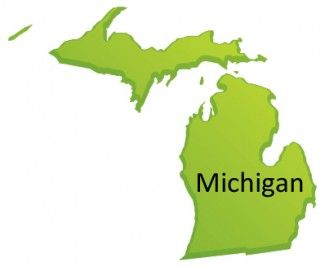By John Schroyer and Tony C. Dreibus
Oklahoma and Nebraska attempt to overturn Colorado’s recreational marijuana law, Native American tribes begin weighing whether to sell medical cannabis, and Anchorage tosses out a proposed ban on MJ businesses.
Here’s a closer look at some notable developments in the marijuana industry over the past week:
Neighborly Feud
Nebraska and Oklahoma don’t like marijuana. They especially don’t like cannabis from Colorado’s recreational market turning up on their turf, which apparently is happening quite frequently these days.
So the two states have teamed up and filed suit against Colorado, asking the U.S. Supreme Court to nullify the country’s first recreational marijuana law.
If successful, the suit could completely upend the recreational market in Colorado and possibly other states as well, dealing a devastating blow to the cannabis industry.
But the chances of that happening appear low, some say.
“I would be shocked if the Supreme Court even accepted the case,” Sean McAllister, a Denver attorney and former Colorado assistant attorney general, told Marijuana Business Daily.
In these types of conflicts, Supreme Court justices look at whether state law requires somebody to violate federal law, he said. In this case, the answer is no.
“Nobody’s required to go into this business,” McAllister said. “Nobody’s required to possess marijuana.”
“This argument has been tried before, and every time it’s been tried, it’s failed. And I expect it’ll happen again,” McAllister said.
Regardless, it’ll likely be months before the Supreme Court decides whether or not to take up the case, McAllister said. So even if the case is turned down, recreational vendors in Colorado (and Washington State as well) will have to wait a bit before getting any clarity.
New MMJ Markets?
Ironically, the lawsuit comes just after Native American tribes – including those in Oklahoma and Nebraska – learned that they likely have the legal right to grow and sell cannabis.
A three-page memo from the Justice Department directed U.S. attorneys to not prevent tribes from growing and selling cannabis, as long as they adhere to strict guidelines.
But whether or not any tribes will take the federal government up on that partial green light, and how that would affect the larger marijuana industry, is still very unclear.
For one thing, several tribes have already come out saying that they simply aren’t interested. Additionally, tribes that do want to move forward could still be open to prosecution if they try growing and selling in states where it’s still illegal. The only difference is that it could be the state instead of the federal government going after them.
“It’s like the medical marijuana clinics here in California,” Ron Andrade, of the Los Angeles City/County Native American Indian Commission, told LA Weekly. “Yeah, you can have one, but we’ll still arrest you.”
The DOJ memo reportedly came about after several tribes inquired whether the feds would support them if they banned marijuana on Native American reservations in states where recreational has been legalized – Colorado, Washington, Oregon and Alaska.
Still, there seems to be some interest.
Oregon U.S. Attorney Amanda Marshall said she knows of three tribes that are potentially interested in turning their newfound right into a business, according to the Washington Post. And the Mohegan tribe of Connecticut has publicly expressed interest, saying it is “looking at numerous opportunities to diversify into new emerging markets.”
Battle Continues After Legalization
A lobbyist’s work is never done.
Pro-marijuana advocates and entrepreneurs had to rally in Anchorage this week to fight a proposal to ban recreational cannabis in the city. Fortunately they succeeded, as the measure died in the Anchorage Assembly by a 9-2 vote.
The development highlights how marijuana legalization is just the beginning of the story. After a state passes a recreational cannabis bill, the jockeying and lobbying continue throughout implementation of the law – and sometimes even longer.
The Washington DC-based Marijuana Policy Project (MPP) helped lead the fight to legalize rec marijuana in Alaska. But it didn’t move on after: The organization was among the entities helping ensure the proposed ban didn’t advance.
“MPP is spending real money in Alaska to ensure that the state and local governments don’t undercut the will of the voters,” said Rob Kampia, the organization’s executive director.
Colorado and Washington State both struggled with implementation. And Oregon, where voters last month approved rec, will likely face challenges as well.
Potential business owners can – and should – play a key role in these battles, along with advocacy groups.
The stakes are high. Alaska recreational marijuana sales could hit $45 million to $55 million a year initially, according to Marijuana Business Media’s estimates. A ban in Anchorage would’ve lowered those numbers substantially, given that it is far and away the most populous city in the state.
John Schroyer can be reached at johns@mjbizmedia.com; Tony C. Dreibus can be reached at tonyd@mjbizmedia.com




